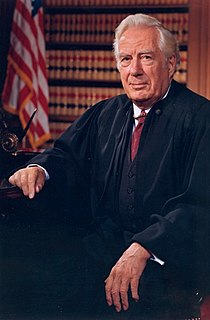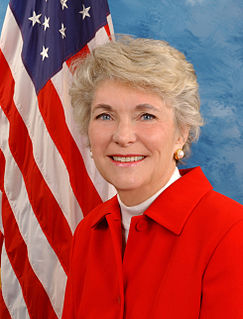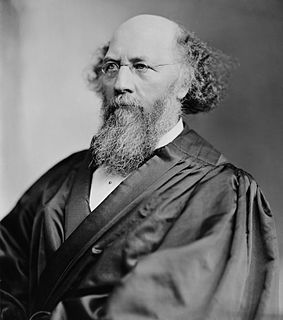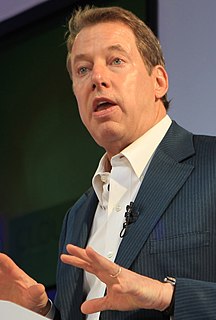A Quote by Dianne Feinstein
I have very deep concern about the legacy of the Rehnquist court and its efforts to restrict congressional authority to enact legislation by adopting a very narrow view of several provisions of the Constitution, including the commerce clause and the 14th Amendment. This trend, I believe, if continued, would restrict and could even prevent the Congress from addressing major environmental and social issues of the future.
Quote Topics
About
Addressing
Adopting
Amendment
Authority
Believe
Clause
Commerce
Concern
Congress
Congressional
Constitution
Could
Court
Deep
E Commerce
Efforts
Enact
Environmental
Even
Future
I Believe
Including
Issues
Legacy
Legislation
Major
Narrow
Prevent
Restrict
Several
Social
Social Issues
Trend
Very
Very Deep
View
Would
Related Quotes
Conservatives who believe that the Constitution should be interpreted according to the plain meaning of its language and the original intent of the Framers have long been troubled by the court's decisions expanding the commerce clause to authorize Congress to regulate the most local of matters within a state's borders.
The men who wrote the First Amendment religion clause did not view paid legislative chaplains and opening prayers as a violation of that amendment... the practice of opening sessions with prayer has continued without interruption ever since that early session of Congress. It can hardly be thought that in the same week the members of the first Congress voted to appoint and pay a chaplain for each House and also voted to approve the draft of the First Amendment... (that) they intended to forbid what they had just declared acceptable.
The Constitution, in addition to delegating certain enumerated powers to Congress, places whole areas outside the reach of Congress' regulatory authority. The First Amendment, for example, is fittingly celebrated for preventing Congress from "prohibiting the free exercise" of religion or "abridging the freedom of speech." The Second Amendment similarly appears to contain an express limitation on the government's authority.
Why can't the investment firm of I've Got More Than You'll Ever Have and I'm Laughing at You About It not build a highway or two if they think it might be a valuable investment? "Well, because then they own it and they can restrict who uses it!" And you think the government doesn't? (laughing) You talk about government owning and restricting people on things? The government restricts what you can say, they restrict what you can watch, they restrict now what you can eat, they restrict what your health care is gonna be, and you're worried about them restricting roads!
To refer the power in question to the clause "to provide for the common defense and general welfare" would be contrary to the established and consistent rules of interpretation, as rendering the special and careful enumeration of powers which follow the clause nugatory and improper. Such a view of the Constitution would have the effect of giving to Congress a general power of legislation instead of the defined and limited one hitherto understood to belong to them, the terms "common defense and general welfare" embracing every object and act within the purview of a legislative trust.
Here I close my opinion. I could not say less in view of questions of such gravity that go down to the very foundations of the government. If the provisions of the Constitution can be set aside by an Act of Congress, where is the course of usurpation to end? The present assault upon capital is but the beginning. It will be but the stepping-stone to others, larger and
In my view, if the Court had properly interpreted the Second Amendment, the Court would have said that Amendment was very important when the nation was new, it gave a qualified right to keep and bear arms but it was for one purpose only, and that was the purpose of having militiamen who were able to fight to preserve the nation.
































